North Yorkshire fire service needs to double Craven staffing
- Published
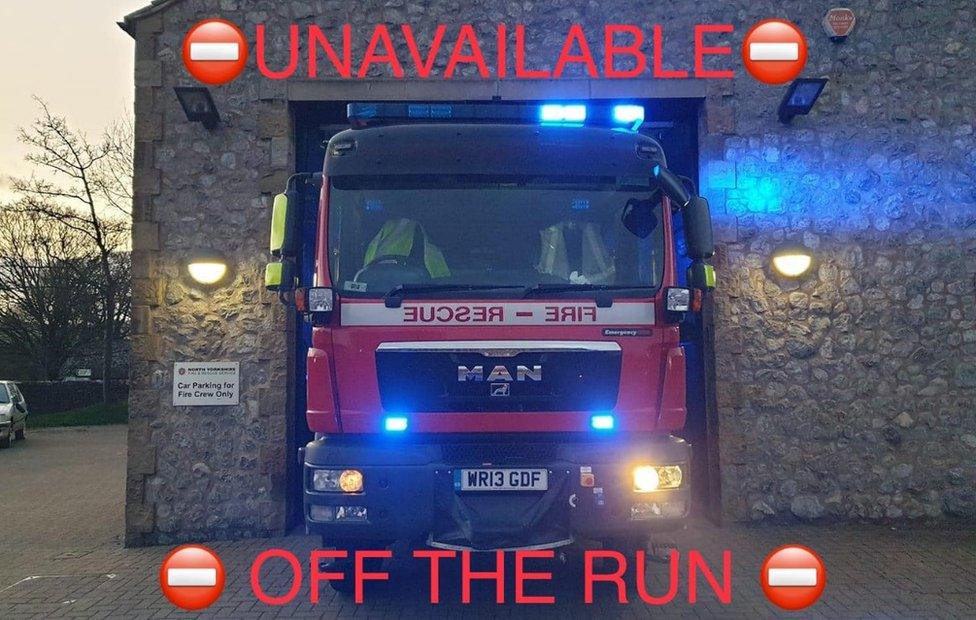
Grassington Fire Station posted on social media about being unable to attend a local house fire due to insufficient staffing
North Yorkshire Fire & Rescue Service says it needs to double on-call staffing levels at some rural stations to tackle a "critical" shortage.
In the early hours of Tuesday there were insufficient staff to send Grassington Fire Station's engine to a house fire despite it being closest.
The fire service has warned lives could be put at risk if staffing worsens.
The county's police, fire and crime commissioner said the service was "actively recruiting" on-call staff.
Grassington Fire Station said it requires a minimum of four people to able to deploy its fire engine, with insufficient staffing at present to keep the station running 24 hours a day.
Skipton, which is the largest station in the Craven district and has two fire engines, was sent to the fire in Skyreholme instead, with one occupant rescued and taken to hospital for the effects of smoke inhalation.
Other stations in the district report similar staffing shortages, with a recent recruitment drive inviting local residents to attend "have a go" events and meet the teams.

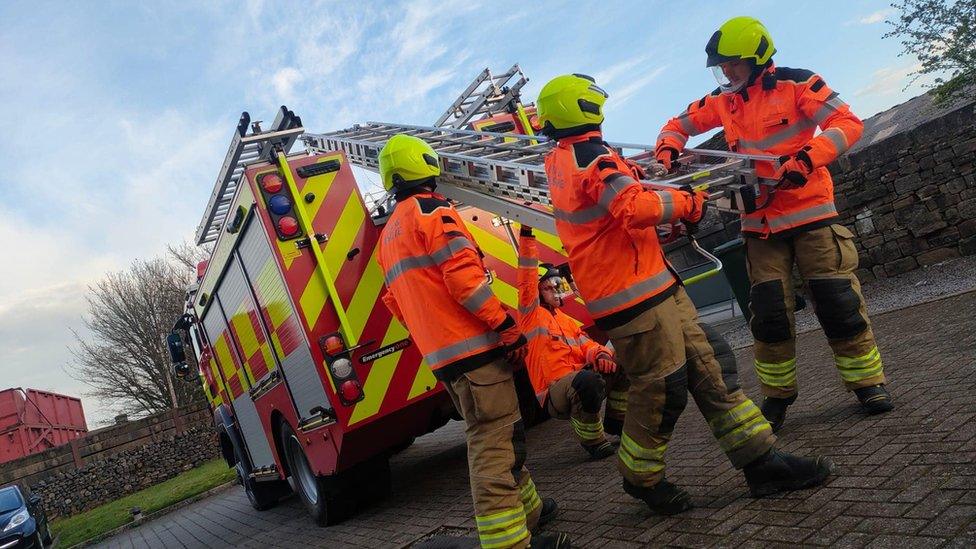
Fire stations in the Craven district
Skipton has two fire engines, handling 350 calls a year, with one fire engine each in Settle, Bentham and Grassington
The three smaller stations handle between 50-100 callouts a year each, with roughly six on-call firefighters currently available for each site
A minimum of four firefighters are required for an engine to be able to be deployed
The 41 on-call staff across the district need to attend stations within five minutes when a call arrives
Nearly all have employment outside of the fire service and tend to be on call for between 80-120 hours a week

The fire service said it required roughly 12 on-call firefighters in Settle, Bentham and Grassington to provide better cover and flexibility, with only 6 currently at each due to recent retirements and people moving to full-time fire service roles.
Martyn Hughes, station manager for the district, said: "Due to the locations and type of populations it becomes more difficult to recruit, people tend to have to commute for work away from the area.
"They might be put off by the hours looking daunting, but it isn't like that - you live a normal life, but every now and then you have to leap into action and do an extraordinary job."
North Yorkshire Fire & Rescue Service said the attention created by the Skyreholme incident led to several potential recruits getting in touch, but more are required.
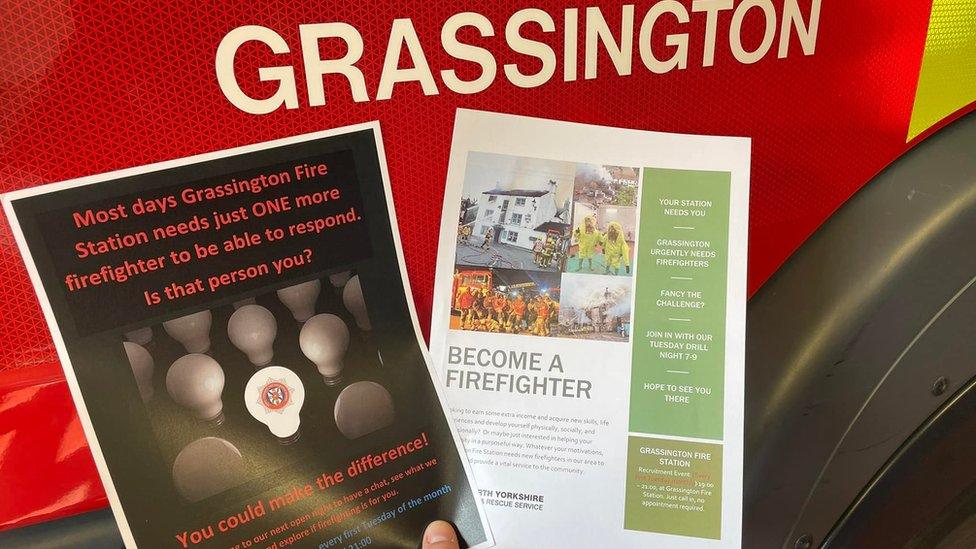
Grassington Fire Station has held regular open day events to attempt to recruit people who live locally
Jeff Richardson, district watch manager, said: "There's six on-call firefighters at Grassington, if you think about crewing 24 hours a day, 365 days a year, it's beyond any person to give that amount of time and be in the area for a quick emergency response.
"Recruitment can be limited by the response time, the flexibility of their primary employment and if they pass fitness tests - those are the big three factors that are stopping us a bit."
Asked if people are being put at risk when staffing requirements mean an engine can't be deployed, Mr Hughes said: "Yes and that's why we're heavily reliant on the community to come together to crew that fire engine."
On-call firefighters in the district currently include full-time plumbers, joiners, plasterers, NHS workers and a computer games designer, the fire service said.
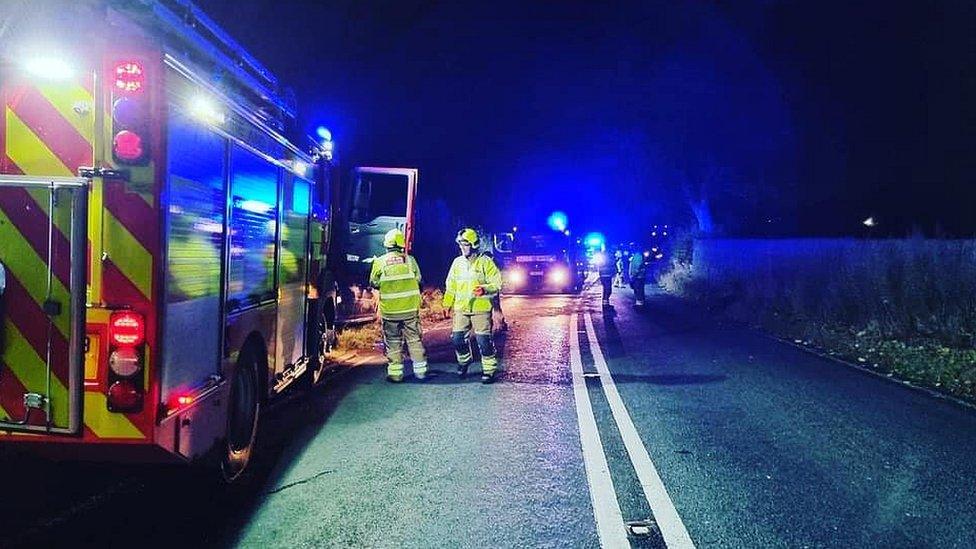
Grassington Fire Station recently posted on social media: "We are at severe risk of our fire engine being unavailable more frequently and want to remedy this quickly"
Mr Richardson, who previously worked as a postman alongside his on-call role, added: "You're looking after your own community - they're responding to their neighbours and you know the area so well."
According to the service's website, on-call firefighters earn an average of £5,000 per year, external depending on the number of incidents and training sessions attended and also receive paid leave entitlement of up to 28 days per calendar year.
A joint statement from the region's police, fire and crime commissioner and chief fire officer said recruitment of on-call firefighters in rural areas is a challenge both locally and nationally.
"Because of these challenges there are times when the availability of our on-call fire engines fluctuates, as well as due to incident attendance or training," they said.
"We monitor and manage this 24 hours per day to ensure that we can provide the right number of fire engines in the right places across the area to keep the public safe."

Follow BBC Yorkshire on Facebook, external, Twitter, external and Instagram, external. Send your story ideas to yorkslincs.news@bbc.co.uk, external.
- Published8 February 2022
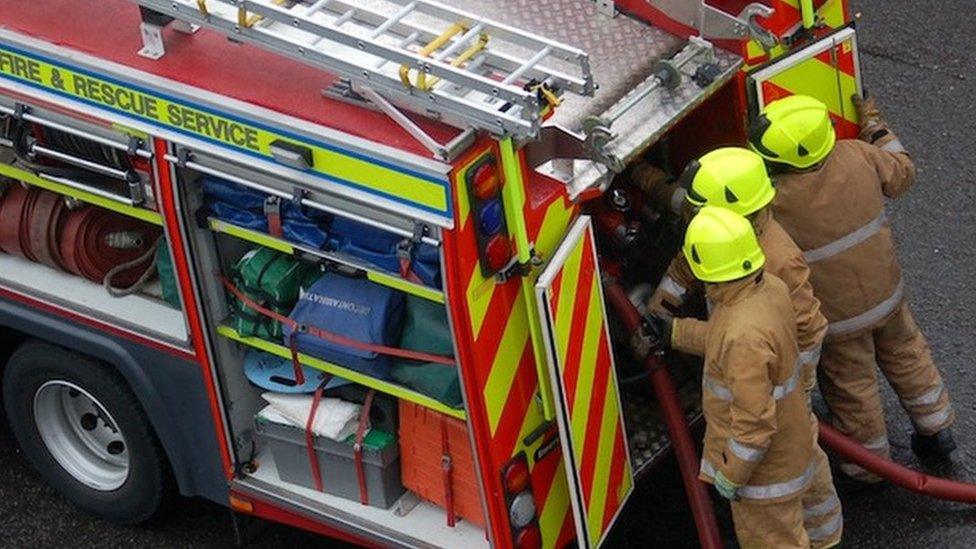
- Published8 November 2021
